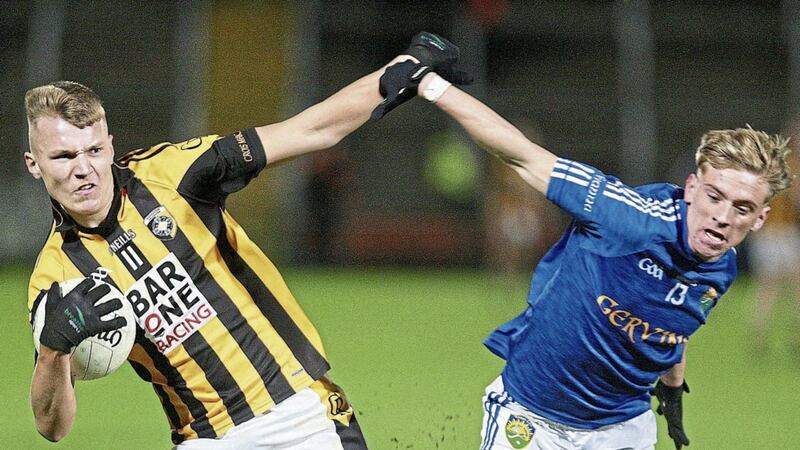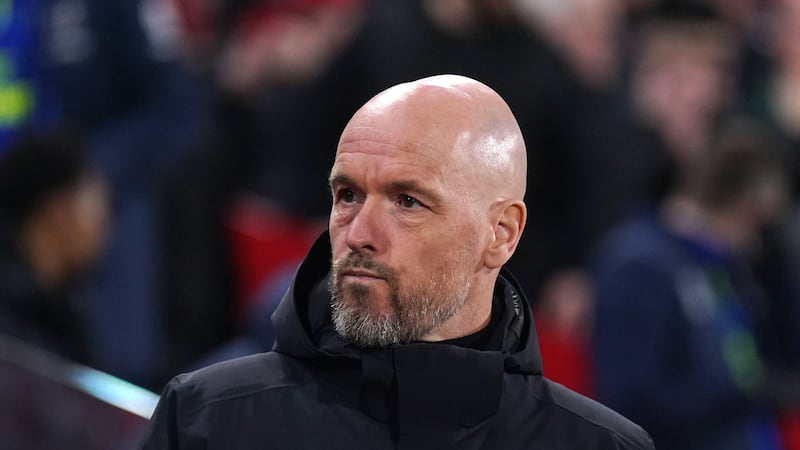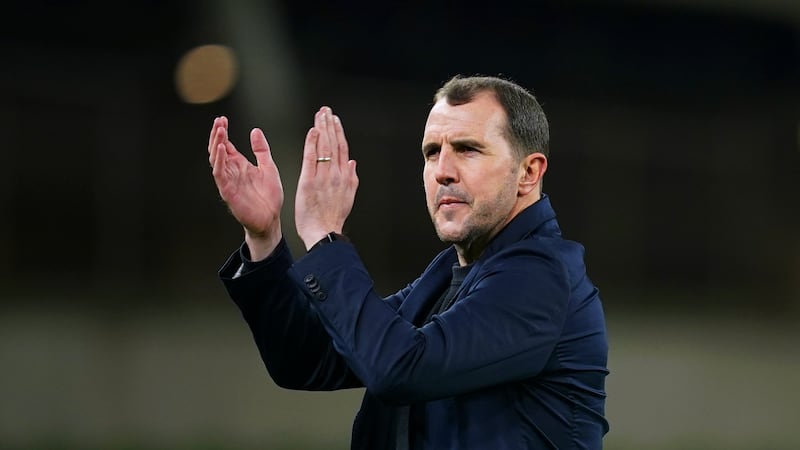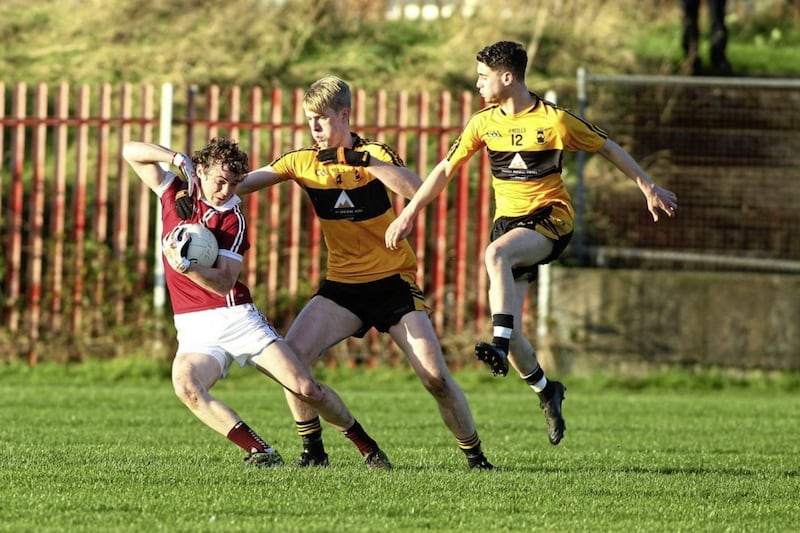YOU'VE got to love the club championship for creating unparalleled drama and excitement.
Where else would you see a Donegal team almost squander a 10-point lead, a Monaghan team inexplicably misfire and still cross the line by a short head, or a team from a staunchly Unionist constituency make its mark on the GAA provincial stage?
Wouldn’t it be great, should Eoghan Rua, Coleraine reach the final, to see Joe Brolly sitting
side-by-side with his, and Coleraine’s, MP – Gregory Campbell – in the Gerry Arthurs Stand in Clones? It might justify the admission fee alone on that occasion.
Back to the football, and the meeting of Coalisland and my own club Crossmaglen at the Athletic Grounds last Saturday night.
Having won their intermediate quarter-final, it was a nice touch by Tattyreagh to stay and welcome their county’s senior champions onto the pitch.
Not long afterwards, the senior match commenced with a typical neighbourly rivalry savoured across the province.
I had the great pleasure of sitting beside the GAA legend that is Eugene McKenna and his son Niall – two men who in a mere two hours dispelled the myth that you cannot enjoy football sitting beside a Tyrone man – not that I subscribe to that view anyway.
I only wish I had another two hours in their company to learn some more.
Much has been written about the performance of referee Martin McNally. As people read the papers in the aftermath of the match, they would be forgiven for thinking that the game was attritional and nasty but it wasn’t.
The four red cards and dozen yellow cards could easily have been reduced to one red, two blacks, perhaps four yellows and a few ticks against players’ names.
The game was a clash of cultures. It was a battle between the rebirth of football as we used to play it and a methodical,
counter-attacking, system-led style of play synonymous with the current era.
It was shadow tackling, hard running, psychological warfare versus physical contact, kick-it-in, get up and play on.
Accurate shooting was all that separated the teams on the day and Coalisland could correctly assert that a different day could have generated a different result. That’s not up for debate.
I’d happily pay to watch Padraig Hampsey and Rian O’Neill duel in all their brilliance once more. The acrid taste on my lips is not about the quality on display, or the overzealous refereeing, but rather about the two incidents which highlighted an absence of sportsmanship.
The first relates to the phenomenon of the nuisance ball boy behind the goals who incessantly kicks the ball back into play, thus slowing down the next kick-out.
No manager would deliberately employ such a tactic. It is a low point of sportsmanship where few would want to venture – but it reflects poorly on the team attacking that goalmouth.
To the referee’s credit, when he noticed this apparently deliberate action he could be seen directing his sideline to dispatch officials behind both goals in an effort to prevent its negative influence on the game.
He also allowed kick-outs to continue when the second ball on the pitch did not significantly interfere with general play.
The second incident centred on the second yellow card issued to Coalisland’s Eoghan Hampsey.
We wondered why he was dismissed after 25 minutes. As it transpired, the referee acted on his umpire’s instruction that the player in question reportedly engaged in a verbal assault on an opposing player.
Whether the penalty ought to
be a black card or a red card is up for debate, but what is clear is that the referee was absolutely correct in taking action and is
to be commended for doing
so.
Far too often we dismiss verbal exchanges by saying “cut that
out and get on with the game” but if there is a flagrant breach of the spirit and the definition of sportsmanship it must be taken seriously.
It is one thing to remind a player that he missed a free or that he is playing poorly and to psyche him out of giving a good performance; going much lower than that to provoke a reaction is unacceptable.
On this occasion the loser was the player and his own team. It is right and just in a game where the focus of attention was on the referee that we give credit where credit is due.
This was not an easy game to referee, but his principled stance on the aforementioned points will stand to him.
The quality of his performance has much room to improve but the referee, like Crossmaglen, will get another day out to prove their true worth.








